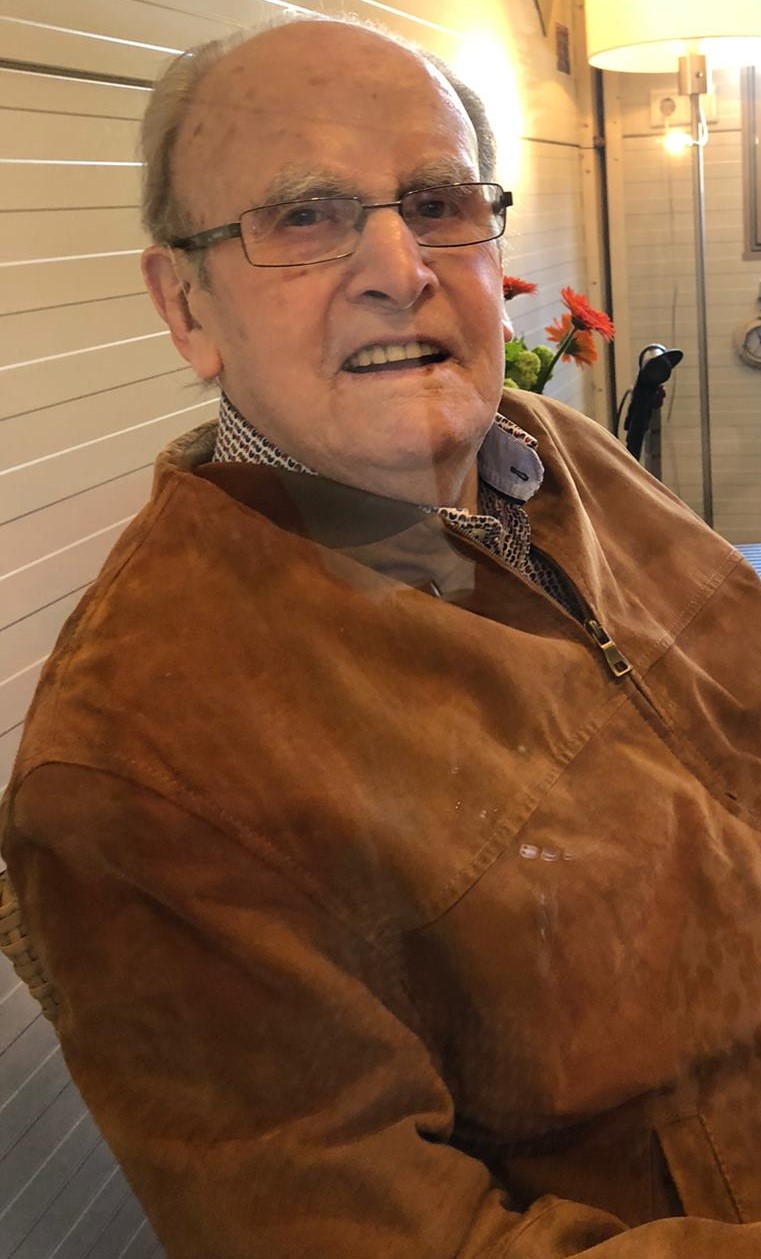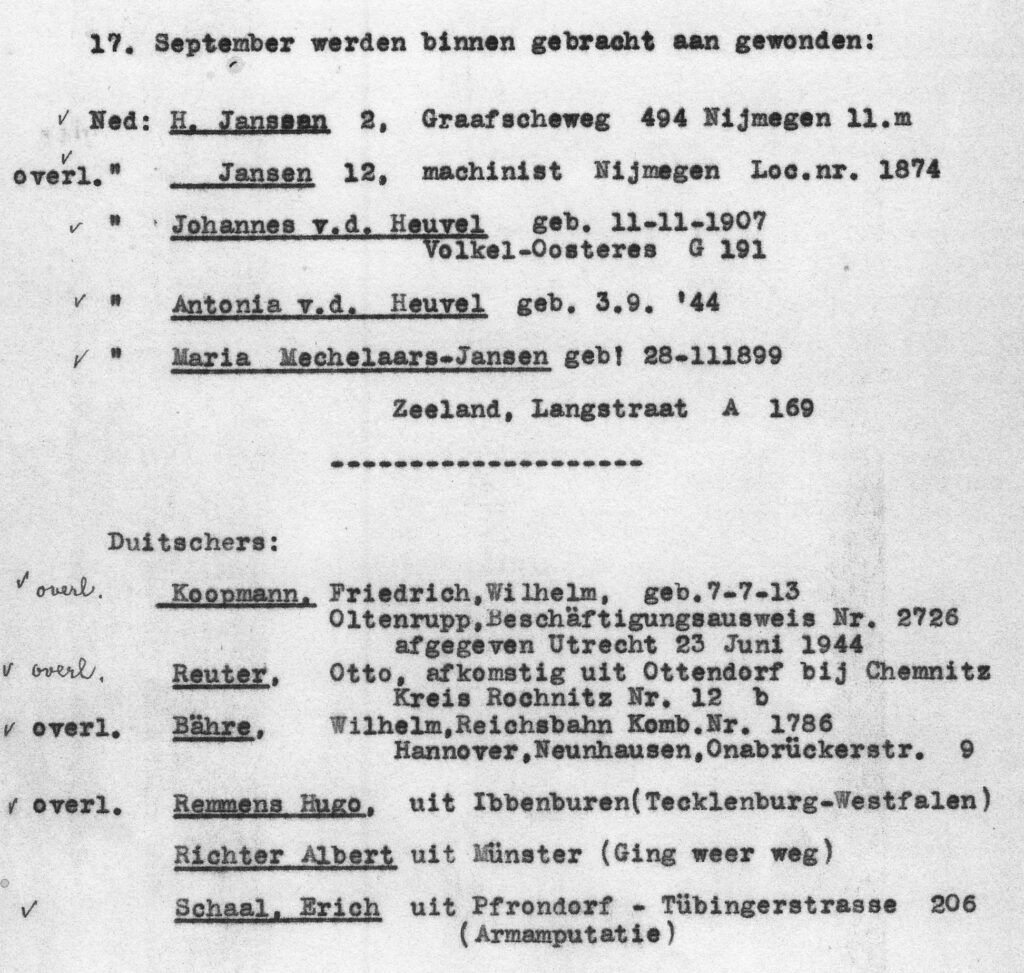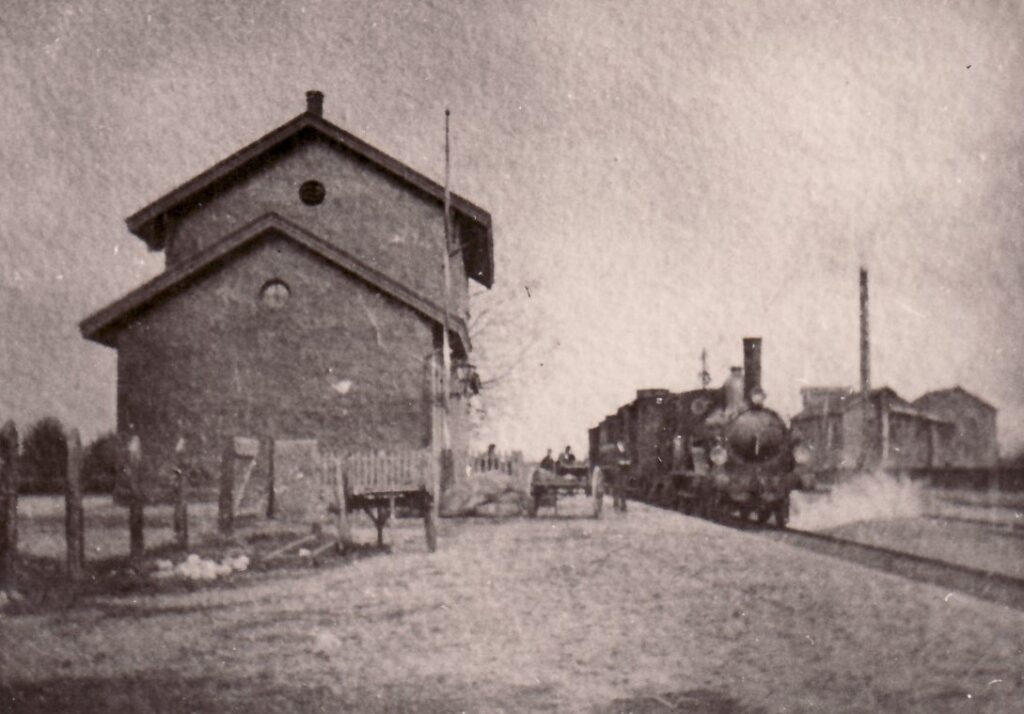
It was Sunday, September 17, 1944 in the morning around 9 o'clock. We were cleaning the milking equipment when suddenly five planes flew over. Behind our house there were pear trees in which our father had placed two long ladders and had tied them securely at the top so that there was no danger of them falling over. You could look over the whole of Uden, for example when a bomber was attacked. First the engines started to smoke and then you saw one after another jump out, until the plane crashed. You could see far away, that's how it was that morning. A group of five fighter planes were watching what the Germans were doing. Because Belgium was almost liberated. And the Germans collected ammunition everywhere to take back to Germany for their own defense. Then they placed an ammunition train at the station in Uden. They had two locomotives and the train remained stationary all day. The locomotive drove back towards Boxtel to pick up more.
First the engines started to smoke and then you saw one after another jump out, until the plane crashed
When we stood on top of the ladder we saw that the locomotive had stopped just outside and when the fighters flew over it towards Volkel it started moving again. But not far because it happened shortly afterwards. We were ready to go to church. We walked to the locomotive and had to return to the Leijgraafbrug. When we got there we saw the soldiers lying next to the locomotive. What did they look like? They were engulfed by the boiling water from the train that had poured over their bodies. They were burned alive but not yet dead. The mayor cycled over with a brand card in his hand. When he had assessed the situation he said: “Help is needed here and not just a little.” The mayor said to my brother Jan: “Take off his boots.” Our Jan took off his boots, which were full of water, and then he had to take off his socks as well. And when our Jan took his socks off, the skin remained completely attached and it was horrible to see. Then we had to put him on the stretcher and carry him away and in the meantime other men had arrived. I didn't know them; perhaps from the air force who sat in a watchtower in a cherry orchard. Then we went to Bert Verhoeven with the brand card.


Carrying was very heavy. The mayor had me hold the brand card up on the cart because of the shock. The high carts came from Bert Verhoeven. He lived near the train tracks. The cart we were on came from Wijdeven van Molenseind. Four soldiers had suffered the same fate and their heads were completely swollen. A soldier had not been in the boiling water. But the soldiers who had been sitting on the side were burned and the one in the front could still walk. We loaded the brand cards onto the carts and slowly sailed towards Uden. A soldier was transported by bicycle; he was sitting on the bar. I had to hold the brand card and I sat with my back to the horse and lay on my knees and it was very heavy and every time the horse stopped I had my feet wedged between the horse and cart. Every time the soldier I was sitting above breathed, blood came from his nose and mouth. I thought if we get to St John's soon, I will go to church because I was completely covered in blood. In St Janstraat we were stopped by a high officer, we had to get off the cart. The officer went onto the cart and we had to wait. Suddenly he came down; I don't know whether he gave that soldier an injection, but we no longer had to go on that cart and it was quiet. Because along the way he kept talking. And he blew out blood every time and my white blouse and my face were all dirty with blood. So the rest of the carts and the bicycle followed with the soldier, and the engineer and the stoker came along on foot. We quickly got out of our way and walked behind the old nuns towards home. Towards the evening the train left and was set on fire at the Kleuter by overflying planes.







